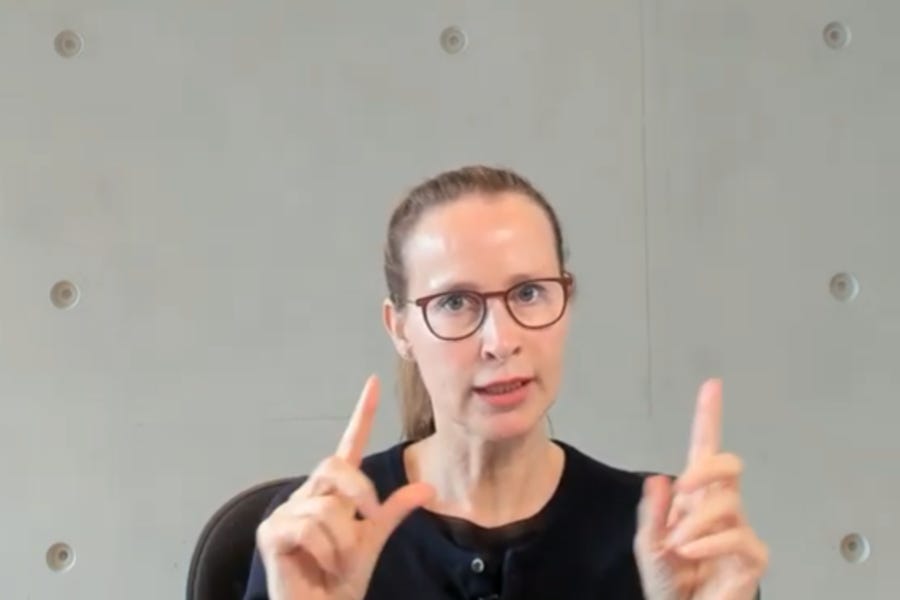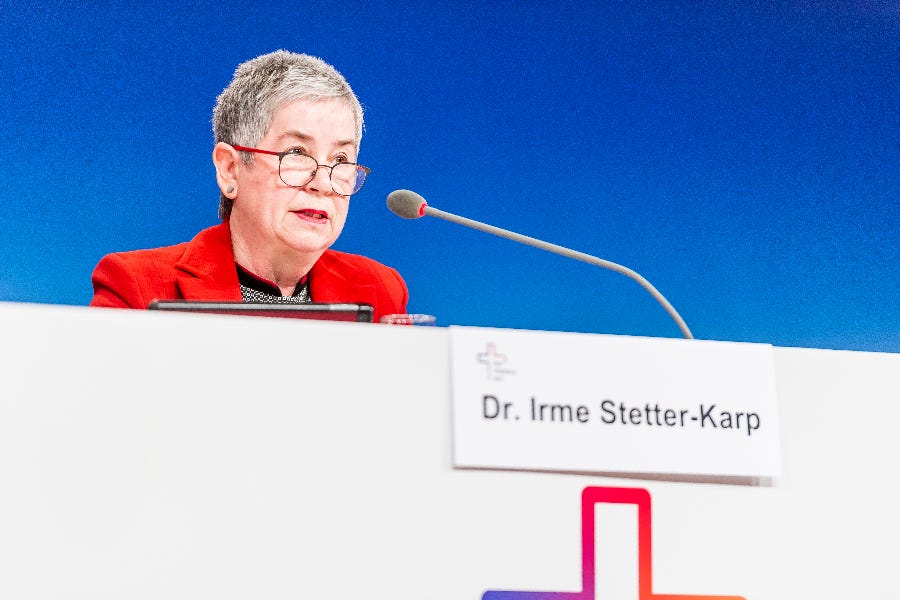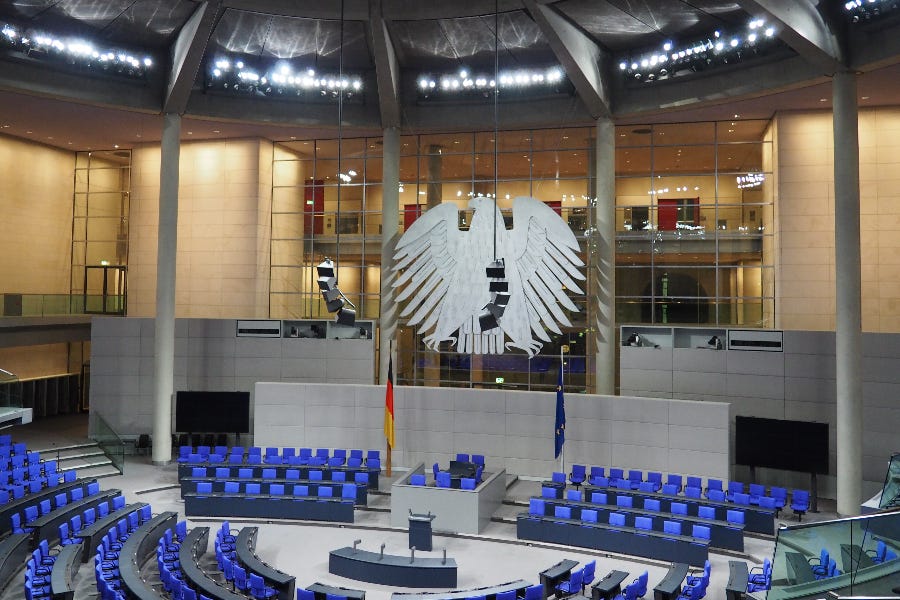By Luke Coppen, The Pillar
BERLIN (THE PILLAR, CONVERSEER) – The election of a judge to Germany’s constitutional court was delayed Friday amid an outcry over her views on abortion.
Opposition to Frauke Brosius-Gersdorf’s appointment to the Federal Constitutional Court brought together figures from across the spectrum of German Catholicism, in a rare convergence.
The parliamentary vote, scheduled July 11, was postponed after it became clear that Brosius-Gersdorf would struggle to gain the two-thirds majority necessary for confirmation to the influential post.
The delay exposed divisions within the country’s new coalition government, led by Friedrich Merz, Germany’s first Catholic Chancellor since Helmut Kohl, whose term ended in 1998.
Who is Frauke Brosius-Gersdorf? How did Catholics respond to her appointment? And what’s likely to happen next?
The Pillar takes a look.

Who is Brosius-Gersdorf?
Frauke Brosius-Gersdorf is a law professor at the University of Potsdam in northeastern Germany.
In 2023, she was appointed to a federal government commission examining ways to regulate abortion outside of the German Criminal Code. The commission was criticized by pro-lifers because it seemed to be laying the groundwork for a major change to the country’s abortion law.
Under the so-called “abortion compromise” following German reunification in 1990, abortion is generally illegal but not punishable in the first three months of pregnancy if a woman obtains a certificate following mandatory counseling after a three-day waiting period.
In an April 2024 report, the government-appointed expert commission proposed fully decriminalizing abortion in the first 12 weeks of pregnancy. The proposal did not pass in parliament because the coalition government led by Chancellor Olaf Scholz collapsed before a vote took place.
After a snap federal election in February 2025, Merz emerged as Germany’s new Chancellor, leading a coalition consisting of his center-right Christian Democratic Union and its Bavarian sister party, the Christian Social Union (known collectively as the CDU/CSU, and the center-left Social Democratic Party (known by its German acronym, SPD).
By July 2025, there were three vacancies on Germany’s 16-member Federal Constitutional Court, whose main task is to rule on whether legislation is compatible with the country’s constitution, known as the Basic Law.
The SPD proposed that Brosius-Gersdorf fill one of the posts. If appointed to the court, she would play a significant role in assessing the constitutionality of German laws during a nonrenewable 12-year term.
Following her nomination, attention turned to an essay Brosius-Gersdorf published in 2024, which considered changes to Germany’s abortion law. The essay reflected on the relationship between Article 1 of the Basic Law, which guarantees respect for human dignity, and Article 2, which upholds the right to life.
Brosius-Gersdorf discussed the proposition that the guarantee of human dignity only begins at birth, suggesting there were “good reasons” for accepting it.
“The assumption that human dignity applies everywhere where human life exists is a biologistic-naturalistic fallacy,” she wrote.
Critics also seized on Brosius-Gersdorf’s other positions, such as her conditional support for banning the surging Alternative for Germany party — which is widely described as far-right, although its supporters reject the label — and her advocacy of mandatory vaccinations. On the eve of the confirmation vote, she also faced a plagiarism accusation, which she strongly denied.

How did Catholics respond to the appointment?
“Anyone who takes the view that the embryo or fetus in the womb has no dignity and only a lesser right to life than the human being after birth is carrying out a radical attack on the foundations of our constitution,” they said.
“He or she must not be entrusted with the binding interpretation of the Basic Law.”
The intervention was not surprising because the bishops of Passau and Regensburg are vocally pro-life. Both have supported the country’s March for Life movement, while other bishops have distanced themselves from it because of its alleged links with far-right groups.
Oster and Voderholzer are well-known critics of Germany’s contentious Synodal Way. But their opposition to Brosius-Gersdorf’s nomination was shared by the initiative’s co-president, Irme Stetter-Karp.
“That a candidate for the office of Federal Constitutional Court judge has publicly stated that there are ‘good reasons why the guarantee of human dignity only applies from birth’ worries me greatly,” she said July 10.
“I would not be able to vote for her based on this position.”
On July 13, days after the nomination vote was postponed, Archbishop Herwig Gössl described the law professor’s position on the right to life of unborn children as a “domestic political scandal.”
In a strikingly fiery address, the Archbishop of Bamberg said: “I don’t want to imagine the abyss of intolerance and contempt for humanity into which we will slide if responsibility before God disappears more and more from people’s consciousness.”
“Then the weaker ones will no longer have a voice: not the unborn and not the elderly in need of care; not the mentally ill and not the socially weak, not the people who have to flee because of war and persecution and not nature, which is unscrupulously exploited and destroyed.”
The backlash against the Catholic interventions in German political circles was swift.
SPD parliamentary group leader Matthias Miersch said July 14 he was “outraged” that high-ranking prelates had entered the debate about Brosius-Gersdorf’s suitability as a constitutional court judge.
“The Church can certainly be political. But taking part in this agitation is unchristian,” he commented.
Miersch argued that the nomination’s postponement was the result of a “smear campaign” waged by right-wing groups online.
Brosius-Gersdorf, who was given police protection following death threats, suggested her views had been misrepresented.
“The main accusation in the media is that I am denying unborn life the guarantee of human dignity and am in favor of abortion up to birth. That is wrong,” she said in a July 15 statement.
The Archdiocese of Bamberg, meanwhile, addressed criticism of Gössl’s comments. The archdiocese said July 14 that Gössl’s words were not directed at any individual, but intended as a warning against “a paradigm shift in constitutional law.”
“He regrets any misrepresentation or misunderstanding of his statements that could damage individuals or the Constitutional Court’s reputation,” the archdiocese said.
Gössl underlined in a July 15 interview that “I and the others are certainly not trying to incite hatred in any way — especially not against any one person.”

Caption: The Bundestag, or German Parliament, in Berlin. Prométhée/wikimedia CC BY-SA 3.0.
What’s likely to happen next?
The SPD’s Matthias Miersch has insisted that Brosius-Gersdorf’s nomination would not be withdrawn.
But for the vote to succeed a second time round, Brosius-Gersdorf’s supporters would need to enter negotiations to secure broader support. It’s unclear whether this is possible or positions have hardened amid the recriminations following the delay.
Another possible scenario is a lengthy stalemate over the nomination, in which the constitutional court vacancy remains unfilled, possibly impacting the court’s functions.
Although Miersch denies it, another possibility is for the nomination to be withdrawn, perhaps with some face-saving formula, and for a less polarizing figure to be named in Brosius-Gersdorf’s place.
The Church too is likely to enter a period of reflection, in which Catholics debate whether bishops’ responses were appropriate and effective. Critics of German bishops’ conference chairman Bishop Georg Bätzing are already asking why he didn’t speak out about the nomination.
The moment of relative unity in opposition to Brosius-Gersdorf’s appointment may pass quickly, as the Church in Germany returns to its usual dividing lines, drawn by the Synodal Way.










